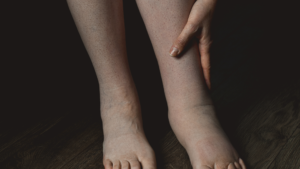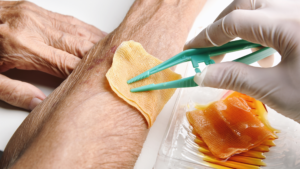Lymphedema, can lead to various complications if left unmanaged and recognizing and managing the risks are of utmost importance. This article explores the most common complications of lymphedema, potential risks, and the importance of proactive management.
What is the most common complication of lymphedema?
The most common complication of lymphedema is the progression of swelling and the subsequent impact on the affected body part. If left unmanaged, the persistent accumulation of lymphatic fluid can lead to chronic tissue changes, known as fibrosis, causing the skin to thicken and harden. This condition can exacerbate the swelling, making the limb feel heavy and uncomfortable. If not addressed in its early stages, this complication can significantly affect a person’s quality of life and mobility.

What are the potential complications of lymphedema?
In addition to the progression of swelling and fibrosis, untreated or poorly managed lymphedema can lead to several other complications. Persistent swelling increases the risk of skin infections, which can be challenging to treat due to the compromised lymphatic system’s reduced ability to fight infections. Moreover, recurrent infections can lead to cellulitis, a severe skin infection that requires immediate medical attention. Additionally, long-term lymphedema may, in rare cases, increase the risk of developing a type of cancer called lymphangiosarcoma. Recognizing these potential complications highlights the importance of early intervention and effective management.

What happens if lymphedema is left untreated?
Leaving lymphedema untreated can lead to a cascade of adverse effects. The progressive swelling and fibrosis can cause a significant decrease in the range of motion and flexibility of the affected limb. The discomfort and heaviness can make it challenging to perform daily activities, affecting a person’s physical and emotional well-being. As the lymphatic system struggles to drain excess fluid, the limb may become prone to recurrent infections. Untreated infections can result in complications like cellulitis, leading to hospitalization or even sepsis if left unaddressed. The consequences of untreated lymphedema underscore the importance of seeking appropriate management and preventive measures.
What are the consequences of lymphedema?
Beyond physical complications, living with lymphedema can have profound emotional consequences. The visible swelling and potential changes in the affected limb’s appearance can lead to body image issues and reduced self-esteem. Moreover, the challenges of managing a chronic condition may cause emotional distress and anxiety. Individuals with lymphedema may experience limitations in participating in social activities or hobbies they once enjoyed. Addressing these emotional consequences and seeking emotional support are vital aspects of holistic lymphedema management.
Managing Lymphedema Complications and Risks
Proactive management is key to mitigating the risks and complications of lymphedema. Seeking early intervention from healthcare professionals experienced in lymphedema management is crucial. These professionals can create personalized treatment plans that may include complex decongestive therapy (CDT), manual lymphatic drainage (MLD), compression therapy, and exercise recommendations. Additionally, self-care practices, such as proper skin hygiene, moisturizing, and wearing compression garments as prescribed, play a significant role in preventing complications.
Conclusion
Recognizing and managing the risks and complications of lymphedema are essential for enhancing the overall well-being and quality of life of individuals living with this condition. By understanding potential complications, the consequences of untreated lymphedema, and the importance of proactive management, individuals can take charge of their health and seek the necessary support for effective lymphedema care. With a comprehensive approach that includes medical guidance, self-care practices, and emotional support, individuals with lymphedema can navigate their condition with confidence and live fulfilling lives.
For more information and resources on lymphedema management, you may consider exploring the following products:
1 Hour consultation: A personalized consultation with lymphedema coach Amanda Sobey.
16-Week Ultimate Lymphedema Journey: A comprehensive program designed to guide and support individuals on their lymphedema journey.
The Lymphie Box: A curated subscription box filled with products and resources to help manage and cope with lymphedema.



